Publications
Explore our publications by our team of experts within the DDP network. Our publications advance knowledge and contribute to deep decarbonization from the perspectives of our in-country experts.
- DDP-BIICS
- Report
- 2021
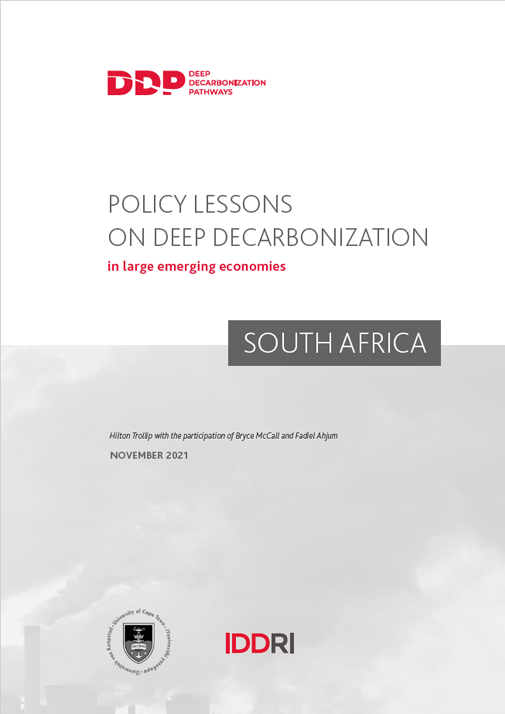
- South Africa
DDP Country Report – Policy Lessons on Deep Decarbonization in South Africa
This report presents the main policy lessons emerging from the national Deep Decarbonization Scenarios developed in South Africa. It includes a description of scenario’s main features, main synergies and trade-offs with country non-climate objectives, priority short-term policies and actions and key international enablers and accelerators of domestic transitions.
- An international report coordinated by the Deep Decarbonization Pathways (DDP) Initiative
- DDP-BIICS
- Report
- 2021
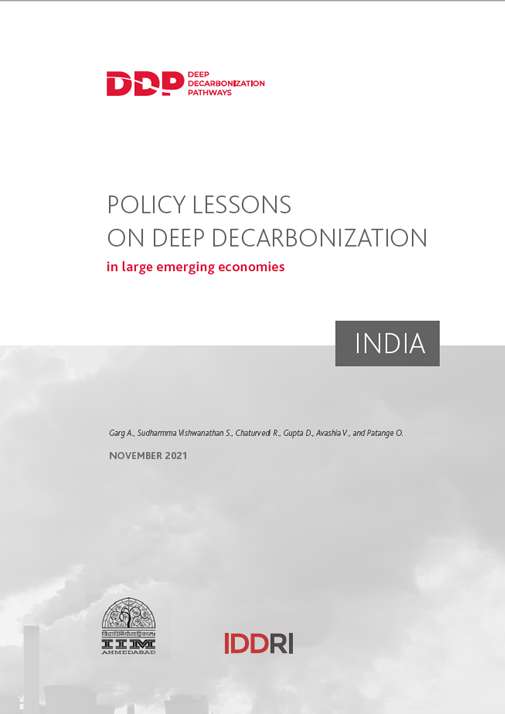
- India
DDP Country Report – Policy Lessons on Deep Decarbonization in India
This report presents the main policy lessons emerging from the national Deep Decarbonization Scenarios developed in India. It includes a description of scenario’s main features, main synergies and trade-offs with country non-climate objectives, priority short-term policies and actions and key international enablers and accelerators of domestic transitions.
- An international report coordinated by the Deep Decarbonization Pathways (DDP) Initiative
- DDP-BIICS
- Report
- 2021
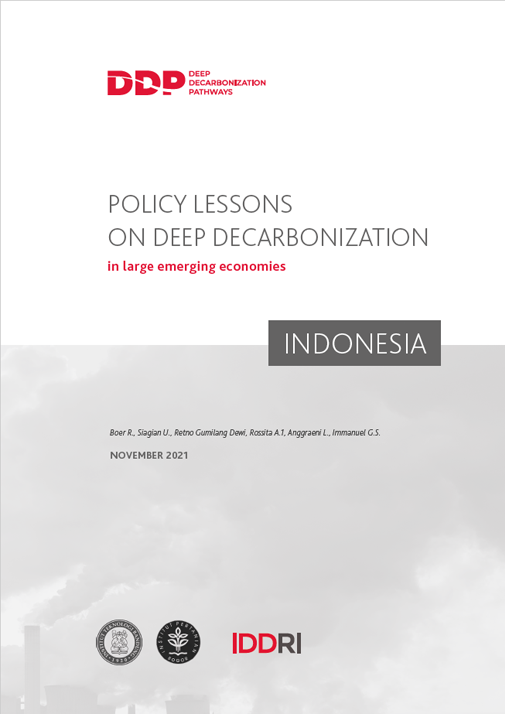
- Indonesia
DDP Country Report – Policy Lessons on Deep Decarbonization in Indonesia
This report presents the main policy lessons emerging from the national Deep Decarbonization Scenarios developed in Indonesia. It includes a description of scenario’s main features, main synergies and trade-offs with country non-climate objectives, priority short-term policies and actions and key international enablers and accelerators of domestic transitions.
- An international report coordinated by the Deep Decarbonization Pathways (DDP) Initiative
- DDP-BIICS
- Report
- 2021
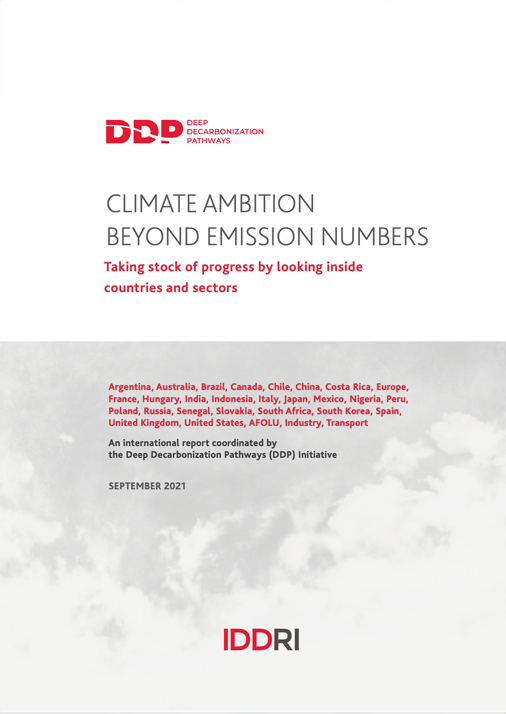
- Argentina, Australia, Brazil, Canada, Chile, China, Costa Rica, Europe, France, Hungary, India, Indonesia, Italy, Japan, Mexico, Nigeria, Peru, Poland, Russia, Senegal, Slovak Republic, South Africa, South Korea, Spain, UK, United Kingdom, USA
CLIMATE AMBITION BEYOND EMISSION NUMBERS: Taking stock of progress by looking inside countries and sectors
This report seeks to open the box of emission pathways, by considering the multidimensional feasibility conditions-i.e. the technical, economic, political, social and institutional- that will enable the required far-reaching and systemic transformation towards the long-term goal.
Country chapters
Argentina, Australia, Brazil, Canada, Slovak Republic, Chile, China, Costa Rica, Europe, France, UK, Hungary, Indonesia, India, Italy, Japan, South Korea, Mexico, Nigeria, Peru, Poland, Russia, Senegal, United Kingdom, USA, South Africa, Spain
Sector chapters
- An international report coordinated by the Deep Decarbonization Pathways (DDP) Initiative
- DDP-BIICS
- Factsheet
- 2021
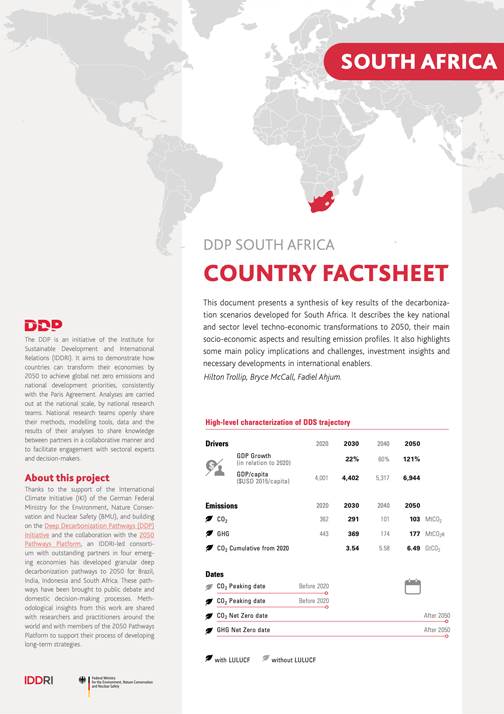
- South Africa
DDP South Africa Country Factsheet
This document presents a synthesis of key results of the decarbonization scenarios developed for South Africa. It describes the key national and sector level techno-economic transformations to 2050, their main socio-economic aspects and resulting emission profiles. It also highlights some main policy implications and challenges, investment insights and necessary developments in international enablers.
- DDP-BIICS
- Factsheet
- 2021
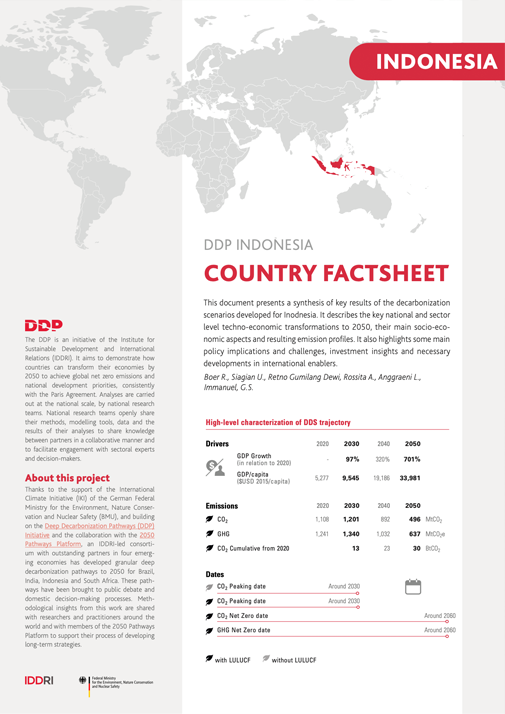
- Indonesia
DDP Indonesia Country Factsheet
This document presents a synthesis of key results of the decarbonization scenarios developed for Indonesia. It describes the key national and sector level techno-economic transformations to 2050, their main socio-economic aspects and resulting emission profiles. It also highlights some main policy implications and challenges, investment insights and necessary developments in international enablers.
- DDP-BIICS
- Factsheet
- 2021
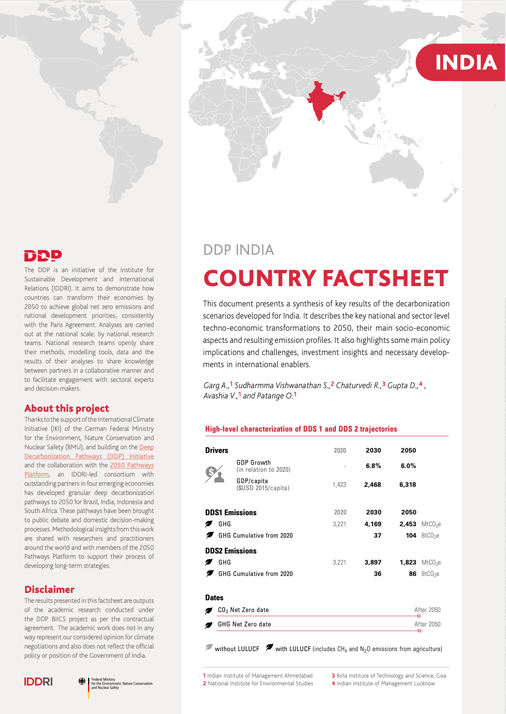
- India
DDP India Country Factsheet
This document presents a synthesis of key results of the decarbonization scenarios developed for India. It describes the key national and sector level techno-economic transformations to 2050, their main socio-economic aspects and resulting emission profiles. It also highlights some main policy implications and challenges, investment insights and necessary developments in international enablers.
- DDP-BIICS
- Factsheet
- 2021
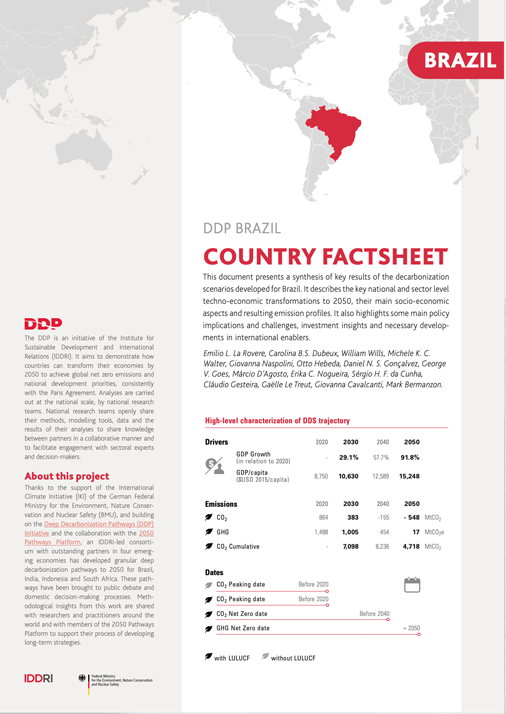
- Brazil
DDP Brazil Country Factsheet
This document presents a synthesis of key results of the decarbonization scenarios developed for Brazil. It describes the key national and sector level techno-economic transformations to 2050, their main socio-economic aspects and resulting emission profiles. It also highlights some main policy implications and challenges, investment insights and necessary developments in international enablers.
- DDP-Initiative
- Note
- 2021
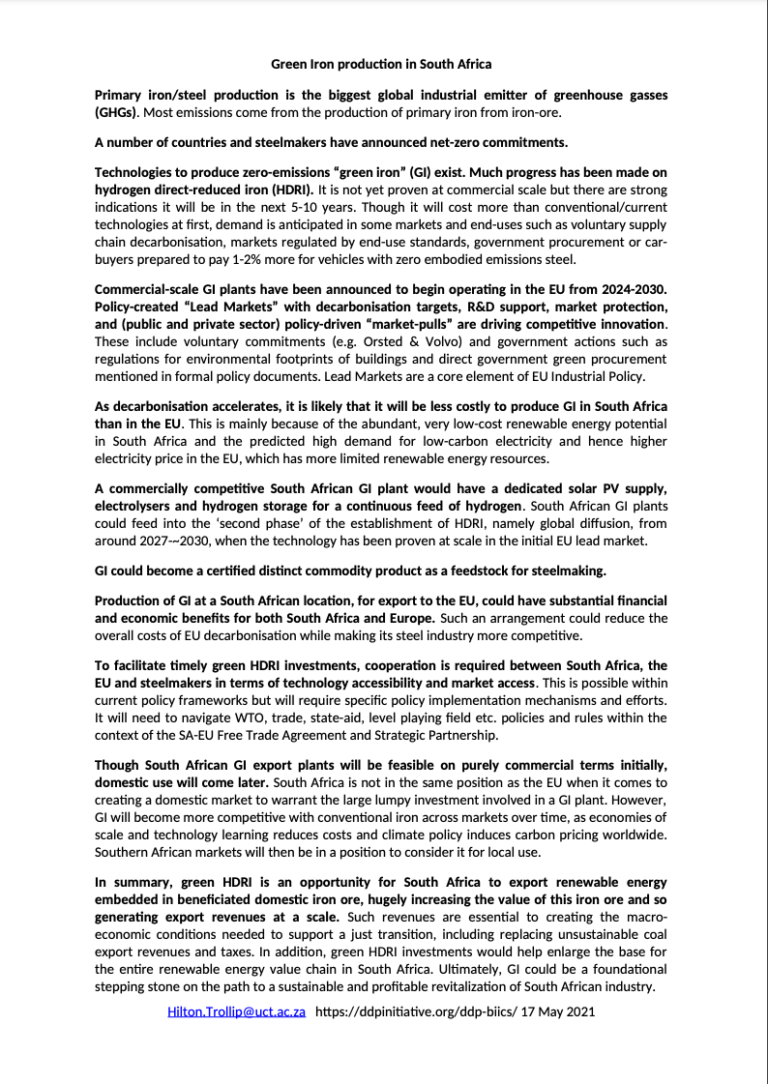
- South Africa
Concept Note
This 4-page document describes an opportunity for taking first steps to begin decarbonisation of the South African primary steel production industry. It explains the need for industry decarbonisation, recent developments in technologies for zero-emissions primary iron production, the potential competitive advantage for a South African-located plant for export to European markets, the benefits for South Africa and Europe, measures in European markets and international trade that would be necessary to create conditions for a bankable commercial investment and the next steps key real world actors would need to take to begin creating these conditions.